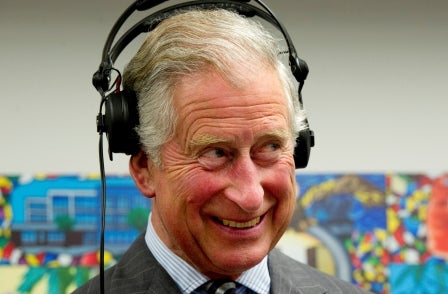
The Attorney General had no reasonable grounds for blocking a court ruling which would allow the disclosure of letters the Prince of Wales wrote to Government ministers, the Court of Appeal was told today.
Guardian journalist Rob Evans is accusing Dominic Grieve QC, the Government's principal legal adviser, of acting unlawfully and failing to show "reasonable grounds" for overriding a decision of the Upper Tribunal.
The tribunal declared in September 2012 that Evans and the public were entitled to see the letters under the Freedom of Information Act 2000 (FoIA), and under the Environmental Information Regulations 2004.
The Government departments concerned with the correspondence did not appeal against the decision of the tribunal, which was headed by High Court judge Mr Justice Walker.
Instead – in what is thought to be a unique situation – the Attorney General issued a certificate under section 53 of the FoIA in October 2012 which rendered the tribunal decision ineffective.
Grieve said that in his opinion the departments were legally entitled to refuse disclosure because the correspondence was undertaken as part of the Prince's "preparation for becoming king".
Making the letters public could potentially damage the principle of the heir to the throne being politically neutral, and so undermine his ability to fulfil his duties when king, said Grieve.
Evans says he is fighting to shed more light "on the way the heir to the throne seeks to influence government ministers even though he holds no elected position".
He applied to see a number of written communications between Charles and various Government ministers between September 2004 and April 2005.
The Information Commissioner upheld the refusal of disclosure, but Evans won the Upper Tribunal decision overturning the commissioner.
The tribunal judges ruled that Evans was entitled to "advocacy correspondence" from Charles, described as letters he had written seeking to advance the work of charities or to promote views.
Today Dinah Rose QC, appearing for Evans, asked three appeal judges to quash the Attorney General's decision trumping the tribunal ruling, and argued that he had erred on a number of grounds involving both European and domestic law.
Rose said the case raised the public law question: "In what circumstances can it be said there are reasonable grounds on which the Attorney General may form an opinion as to the lawfulness of the conduct of a Government department which is different from the judgment given by a superior court of record?"
The second question was: "In this case, did the Attorney General in fact show reasonable grounds for forming his opinion?"
Rose answered the question: "We submit he did not."
The latest round of legal action follows the decision last July by three High Court judges – led by the then Lord Chief Justice, Lord Judge – backing the Attorney General's action.
They ruled the use of the veto was lawful, and that Grieve had reasonable grounds for deciding it was "an exceptional case meriting use of the ministerial veto to prevent disclosure and to safeguard the public interest".
The seven government departments to which Charles wrote were Business, Innovation and Skills; Health; Children, Schools and Families; Environment, Food and Rural Affairs; Culture, Media and Sport; the Northern Ireland Office and the Cabinet Office.
The appeal hearing, expected to last at least two days, is before the Master of the Rolls Lord Dyson, Lord Justice Richards and Lord Justice Pitchford.
Email pged@pressgazette.co.uk to point out mistakes, provide story tips or send in a letter for publication on our "Letters Page" blog
